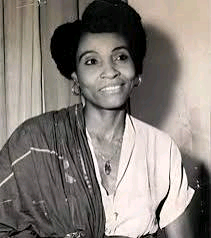Janet Nwadiogo Mokelu was a Nigerian politician, philanthropist, nurse, teacher, headmistress, and businesswoman. She distinguished herself as an educationist, committed activist, and nationalist. She was one of the first Nigerian female lawmakers and a former member of the Eastern House of Assembly in Nigeria.
Early Life and Education
- Born: February 7, 1910, to Joseph and Margaret Onwuegbuzia of Umuagu quarters, Asaba (now Delta State, Nigeria).
- Attended Teachers' Training College (1930–1932).
- Obtained the Grade II Teachers' Certificate.
Career
- Worked as a teacher and headmistress before venturing into political and social activism.
- Appointed Special Political Adviser to the Government of Anambra State (1980–1983).
- Served as a member of the Eastern House of Assembly (1961–1966), pioneering legislation for gender pay equality in the public service.
Political and Social Activism
- Advocated for equal pay for married women in public service.
- Supported women's political participation, insisting women should have the right to vote and be voted for.
- In 1949, mobilized women to protest the Enugu miners' massacre, demanding justice for the 21 miners killed and condemning colonial policies.
- Authored and supported progressive bills in the Eastern House of Chiefs and Eastern House of Assembly.
Religious and Community Leadership
- Strong believer in ecumenism, collaborating with Lady Eudora Ibiam on church-related initiatives.
- Led the Oraifite Anglican Women's Conference for 25 years (until 1995).
- Spearheaded projects including:
- Boys Secondary School, Oraifite.
- A weaving industry.
- First female Knight of the Order of Saint Christopher in the old Diocese on the Niger.
Philanthropy
- Known for generosity, regularly providing money, food, and clothing to the poor.
- Encouraged discipline and moral values among women in her community.
Death
- Died: March 31, 2003.
Legacy
- Remembered as a pioneer for women in Nigerian politics.
- Her activism contributed to gender equality in wages and greater political rights for women.
- Her parliamentary contributions are documented in:
- Parliamentary Debates of Eastern House of Chiefs, Official Report 1960–1961.
- Parliamentary Debates of Eastern House of Assembly, Official Report 1961–1966.
References:
- Parliamentary Debates (Eastern House of Chiefs and Assembly)
- Historical records of Nigerian women's political movements
